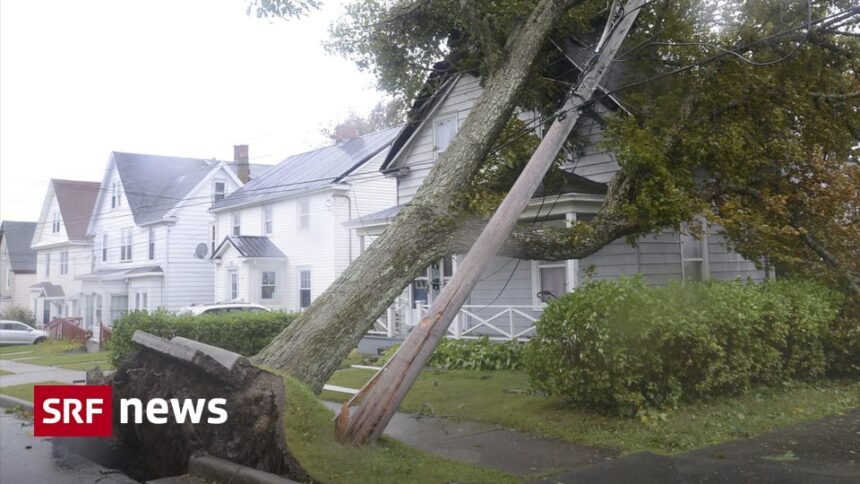TORONTO, Canada — Canadian troops are being sent to assist the recovery from the devastation of storm Fiona, which swept away houses, stripped off roofs and knocked out power across the country’s Atlantic provinces.
After surging north from the Caribbean as a hurricane, Fiona came ashore before dawn Saturday as a post-tropical cyclone, battering Nova Scotia, Prince Edward Island, Newfoundland and Quebec with hurricane-strength winds, heavy rains and huge waves.
Defense Minister Anita Anand said Saturday that troops would help remove fallen trees and other debris, restore transportation links and do whatever else is required for as long as it takes. She didn’t specify how many troops would be deployed.
Fiona was blamed for at least five deaths in the Caribbean, but there was no confirmation of any fatalities or serious injuries in Canada. Police said a woman who might have been swept away was listed as missing in the town of Channel-Port Aux Basques on the southern coast of Newfoundland.
Raging surf pounded Port Aux Basques and entire structures were washed into the sea.
The Royal Canadian Mounted Police said the town of 4,000 people was in a state of emergency with multiple electrical fires and residential flooding.
As the extent of damage became clear, Prime Minister Justin Trudeau cancelled his trip to Japan for the funeral for assassinated former Prime Minister Shinzo Abe.
“We are seeing devastating images coming out of Port aux Basques. PEI (Prince Edward Island) has experienced storm damage like they’ve never seen. Cape Breton is being hit hard, too,” Trudeau said.
“There are people who see their houses destroyed, people who are very worried — we will be there for you,” Trudeau added.
More than 415,000 Nova Scotia Power customers — about 80 per cent of the province of almost 1 million people — were affected by outages Saturday. Over 82,000 customers in the province of Prince Edward Island, about 95 per cent, also lost power, while NB Power in New Brunswick reported 44,329 were without electricity.
Peter Gregg, president and CEO of Nova Scotia Power, said unprecedented peak winds inflicted severe damage and the bad weather kept repair crews from going out at first. He said about 380,000 customers remained without power Saturday afternoon as a weakening Fiona moved away over the Gulf of St. Lawrence.
The Canadian Hurricane Centre tweeted that Fiona had the lowest pressure ever recorded for a storm making landfall in Canada. Forecasters had warned it could be the one of the most powerful storms to hit the country.










